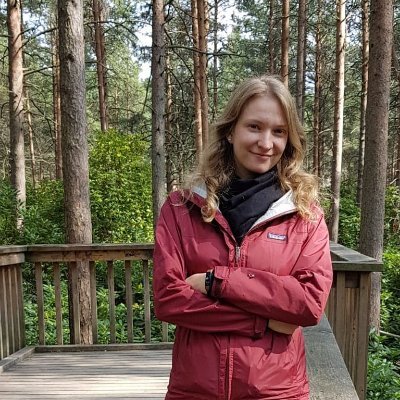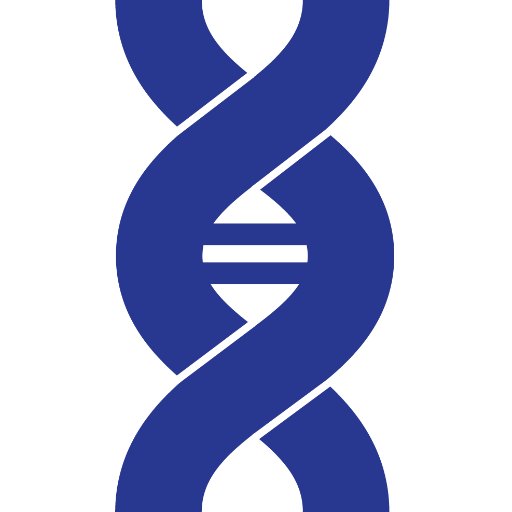
Genome Aggregation Database
@gnomad_project
Followers
2K
Following
3
Media
26
Statuses
77
The world's largest open resource of human genetic variation. For help please use https://t.co/RYRjYJLrTQ; feature requests/bug reports to https://t.co/YUQGPHndSI
Cambridge, MA
Joined February 2020
Honored to be spotlighted by @globalbiodata this week.
Our featured GCBR of the week is The Genome Aggregation Database (gnomAD) which aggregates and harmonises both exome and genome sequencing data from large-scale sequencing projects. Click the link to find out more https://t.co/fwrfmD1vFx
@NIH
0
0
2
Proportion expressed across transcripts (pext), using GTEx v10, is now available on #gnomAD v4!
0
18
51
I'm excited to announce that we have generated local ancestry informed allele frequencies for the inferred African/African American genetic ancestry group of gnomAD v4.0, live now on the browser! https://t.co/KoOKdKRCcS
2
11
72
GeniE, the genetic prevalence estimator, is now available! https://t.co/QHtuIvLrGt This tool allows users to estimate the genetic prevalence of autosomal recessive diseases using #gnomAD allele frequency data & classifications from #ClinVar Blog post: https://t.co/aSpUglRKVj
2
26
77
gnomAD 4.1 is now live! This release fixes the AN issue in #gnomAD v4.0 & adds 2 new functionalities: 1) Joint AN across all called sites in exomes and genomes 2) A flag indicating when exomes and genomes frequencies are highly discordant Learn more at
0
27
66
gnomAD 4.1 is now live! This release fixes the AN issue in #gnomAD v4.0 & adds 2 new functionalities: 1) Joint AN across all called sites in exomes and genomes 2) A flag indicating when exomes and genomes frequencies are highly discordant Learn more at
0
27
66
Our paper describing a way to infer the phase of rare variant pairs using gnomAD v2 is out now in Nature Genetics. We hope that the resource we generated will be useful when interpreting rare co-occurring variants in the context of recessive disease. https://t.co/29Qflr6Yce
6
74
249
Thrilled to have our work on gnomAD out in print at Nature today. With 76K genomes, we can look beyond the coding genome and into the non-coding genome to find regions important for human disease
6
103
334
A special congratulations to @konradjk, @sc2643, @ksamocha and @MGoGuo for all their hard work on these publications. Read more about this work at https://t.co/X9Z7lpTXU2 (2/2)
0
1
9
The #gnomAD v3 papers are now published! This includes the non-coding constraint paper ( https://t.co/akE9LGWymJ) & inferring compound heterozygosity paper ( https://t.co/1Gw1sTrxWI). Congratulations to everyone who contributed to this valuable work! (1/2)
3
48
144
Please take a few minuets to provide feedback to the #hail team!
Hey all! We are running a survey to solicit broad-based feedback from users & *non-users* of Hail Query. We'd like to hear from anyone who analyzes sequencing or genotype-chip datasets! All questions optional, fully anonymous, & takes <=10min! https://t.co/gMiV3snGBj
0
2
2
As part of v4, we are happy to announce the launch of the #gnomAD forum https://t.co/7Lkg4FHjFA. This will be a place for our users to help each other, discuss the data and ask questions. #ASHG23
discuss.gnomad.broadinstitute.org
A place for users of the Genome Aggregation Database to discuss the data, ask questions, and get help from eachother and the gnomAD team.
0
12
41
To learn more about what is involved with QCing the gnomAD v4 dataset please attend Julia Goodrich’s #ASHG23 talk today (11/4) at 10:30am in ballroom B
QC of v4 required analyzing over 1 BILLION variants! More than 910 million variants passed our filters and are available on our browser https://t.co/YoRUWHD08N. More details on this variant dataset are available on our new stats page https://t.co/wzNXhlhiF1 (3/11)
0
1
4
To learn more about the impact of diversity on variant discovery and gene constraint please attend Katherine Chao’s #ASHG23 talk tomorrow (11/4) at 11am in rm 202A
Our genetic ancestry blog https://t.co/lgqDr62oKc discusses our efforts to improve representation in #gnomAD, how we label groups and how the diversity in gnomAD is improving genomic filtration. (4/11)
0
2
1
To learn more about the technical details of how this data was generated read our blog posts https://t.co/WMh9WwPfWL and https://t.co/yCutZY8KHf. If you are attending #ASHG23 please attend Jack Fu’s talk today (11/2) at 1:45pm in rm 202A (2/2)
0
1
6
As part of #gnomAD v4, in collaboration with the @TalkowskiLab, we have released 1,199,117 genome SVs and 66,903 rare exome CNVs. These data represent the first gnomAD SV dataset released native to the GRCh38 reference genome. (1/2)
2
47
166
@hailgenetics @tpoterba @BroadGenomics Keep an eye on this account for the next few days to learn more about our methods including structural variation, genomic ancestry, and our QC process. In the meantime check out the v4 dataset at https://t.co/YoRUWHD08N (11/11)
0
0
4
@hailgenetics @tpoterba @BroadGenomics And of course, a special thank you to the 308 gnomAD data contributors and all the individuals who have enrolled in research. Without their willingness to share data and participate in research, gnomAD would not exist! https://t.co/oSaUWbWjia (10/11)
1
0
5
@hailgenetics @tpoterba The full gnomAD v4 launch team was composed of multiple groups at the Broad spanning the MPG and DSP programs as listed below, with most data generated by @BroadGenomics. Thank you!!! (9/11)
1
0
5





